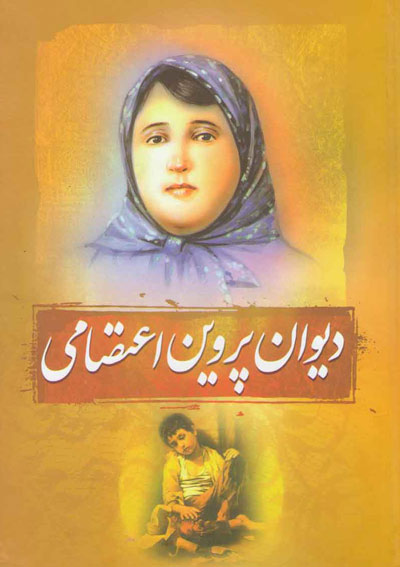
Parvin, one of the great contemporary female poets, was born on March 16, 1907 in the northwestern city of Tabriz in East Azarbaijan Province.
According to prominent linguist, Ali Akbar Dehkhoda, her given name was Rakhshandeh.
She spent her early years in Tehran with her father, Yousef Etesami (Etesam al-Molk), under whom she gained knowledge of Arabic and Persian literature.
In view of his literary personality as Etesam al-Molk, his house was frequented by figures such Nasrollah Taqavi, Ali Akbar Dehkhoda and Bahar.
Given his command of French and Arabic, Etesam al-Molk had access to books and journals published in Cairo, Damascus, Baghdad, the Caucasus and Europe, Lifeofthought.com reported.
She grew up under the supervision of her father in a literary and scholarly ambience and soon achieved intellectual maturity.
In her short life (d. April 5, 1941), she managed to attain great fame among Iranians.
Parvin was about seven or eight years old when her poetic ability blossomed. In 1921-22, some of her earliest known poems were published in the Persian magazine 'Bahar' (Spring).
Parvin's collection of poems (anthology) was first published in 1935.
Literary figures were familiar with her poems that were printed in the second column of Bahar journal published by her father.
The second edition, edited by her brother, appeared shortly after her death in 1941. It comprised 209 different compositions in Mathnawi, Qasida, Ghazal, and Qeta (Persian poetic styles).
In 1936, the ministry of education awarded her with a scientific medal. She was employed as a librarian at the ministry in the same year.
Her anthology is almost devoid of personal and social events and incidents. Except for a poem in mourning for her father, a piece for her own gravestone, and the poem 'Twig of Wish' written for her graduation ceremony in the spring of 1924, and a couple of other works, there is nothing in her poems to help understand her personality.
After her demise, no official ceremony was held and a memorial service was held in the spring of 1942 by her friends and acquaintances on the anniversary, in which they referred to the neglect shown to the poet during the despotic rule of the time.
Honor ceremony
On March 11, the Art and Cultural Organization of Tehran Municipality opened a forum titled 'House of Poetry and Literature' in the Abbasabad neighborhood on the sidelines of a commemoration ceremony organized for poets Parvin Etesami, Mahdieh Elahi Qomshei, Tahereh Saffarzadeh and Sepideh Kashani.
Speaking at the ceremony, the veteran poet Ghazal Tajbakhsh said that the short life of Parvin has had many messages, especially her sadness and the bitterness of her poetry.
"Parvin has had a great influence on Persian literature despite her short life and it is our responsibility to honor her and also other living poets," he remarked.
In May, Tehran will also host the 9th National Parvin Etesami Film Festival to honor women working in cinema.
The winners of the competition sections of the festival will be awarded the golden Parvin statuette (the small bust of the poetess), a commendation plaque, and cash prize.

Add new comment